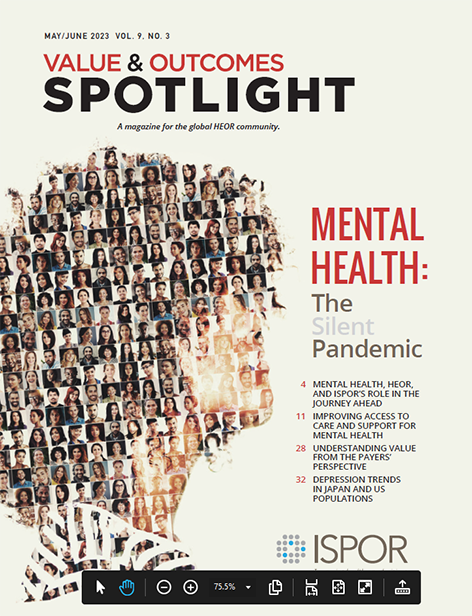Mental Health: A Call to Action
 Mental health is a crucial determinant of individual and population health, as well as social and economic development. However, mental disorders are among the leading causes of disability and disease burden worldwide, affecting millions of people and their families. Mental disorders can increase the risk of physical health problems, such as heart disease, diabetes, and stroke, as well as impair social and occupational functioning, reduce the quality of life, and increase mortality. Mental disorders also impose a heavy burden on society, causing substantial costs and losses in productivity, welfare, and security.
Mental health is a crucial determinant of individual and population health, as well as social and economic development. However, mental disorders are among the leading causes of disability and disease burden worldwide, affecting millions of people and their families. Mental disorders can increase the risk of physical health problems, such as heart disease, diabetes, and stroke, as well as impair social and occupational functioning, reduce the quality of life, and increase mortality. Mental disorders also impose a heavy burden on society, causing substantial costs and losses in productivity, welfare, and security.
However, mental health is often neglected and underfunded in many countries, resulting in a large gap between the need for and the availability of quality mental health care. Moreover, mental health is frequently stigmatized and discriminated against, creating barriers to access and recovery. Therefore, there is an urgent need to invest more in mental health promotion, prevention, treatment, and research, as well as to ensure the respect and protection of the rights of people with mental health conditions.
Investing in mental health can benefit individuals and society, such as enhancing well-being, resilience, learning, work performance, social inclusion, and community engagement. Mental health is not only a public health issue but also a development priority that requires multisectoral collaboration and action.
Health economics and outcomes research (HEOR) can be important in informing and supporting mental health policies and practices. Economic evaluation can provide evidence on the costs and benefits of different interventions and strategies for mental health care. It can also help to identify the most efficient and equitable ways of allocating scarce resources for mental health. Lastly, economic evaluation can demonstrate the value for money of investing in mental health, by showing the potential returns on investment in terms of improved health, social, and economic outcomes.
There is a growing body of economic evidence on mental health interventions, covering various settings and populations. For example, economic studies have shown that:
- Screening and treating perinatal depression can improve maternal and child outcomes and save costs in the long-term.
- Preventing or reducing mental health problems in childhood and adolescence can have lasting benefits for individuals and society.
- Scaling up treatment, particularly psychotherapy, for depression can be cost-effective or cost-saving in many contexts.
- Providing community-based early intervention and employment support for psychosis can improve recovery and reduce hospitalization costs.
- Offering cognitive stimulation and multicomponent caregiver interventions for dementia can enhance the quality of life and delay institutionalization.
However, there are still major gaps in knowledge and challenges in translating evidence into policy and practice. Some of the challenges include:
- The lack of high-quality data on the costs and outcomes of mental health interventions in different settings and populations.
- The heterogeneity of mental health conditions, interventions, outcomes, and preferences across individuals and groups.
- The complexity of measuring and valuing outcomes that are not easily captured by monetary or clinical indicators.
- The uncertainty and variability of costs and outcomes over time and across contexts.
- The difficulty of accounting for spillover effects across sectors and stakeholders.
- The barriers to implementation include financial constraints, workforce capacity, organizational culture, stigma, discrimination, etc.
To overcome these challenges, we need to:
- Strengthen the collection and analysis of data on the costs and outcomes of mental health interventions at different levels (individuals, families, communities, society).
- Develop more robust methods and tools for economic evaluation that can capture the complexity and diversity of mental health issues and solutions.
- Engage with stakeholders from different sectors and perspectives to ensure the relevance and applicability of economic evidence for decision making.
- Communicate the findings and implications of economic evaluation in clear and compelling ways to inform and influence policy makers, practitioners, funders, advocates, and users of mental health services.
Mental health is a key component of overall health and well-being that deserves more attention and investment from all sectors and levels of society. HEOR can provide valuable insights and guidance on how to improve mental health care and outcomes in a cost-effective and equitable way. By investing in mental health, we can improve the health outcomes and quality of life of millions of people around the world.
As always, I welcome input from our readers. Please feel free to email me at zeba.m.khan@hotmail.com.

